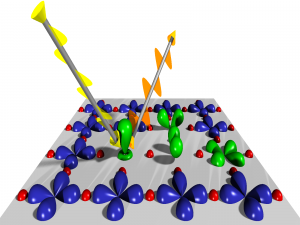Inequality is the same for all.
(Wilhelm Röpke)
In his lecture series The birth of biopolitics, Michel Foucault gave a definition of his concept of governmentality: ‘Power, does no more than designate a domain of relations which are entirely still to be analyzed, and what I have proposed to call governmentality, […] the way in which one conducts the conduct of men, is no more than a proposed analytical grid for these relations of power.’

Image by CERN.
This ‘conduct of conduct,’ as explained by Colin Gordon, is ‘a form of activity aiming to shape, guide or affect the conduct of some person or persons.’
Putting into play what he calls ‘the equivocal nature of the term “conduct,”‘ Foucault states: ’to “conduct” is at the same time to “lead” others […] and a way of behaving within a more or less open field of possibilities.’ Here, conduct is interpreted on one hand as a way of influencing or determining the actions of others, and on the other, as a way of acting, which is in itself always subject to influences and determinations from outside the acting subject. These two meanings of the term conduct are then, as it were, wrapped up in the theory of governmentality.
To Foucault’s play on the double meaning of the term conduct there should be added another definition. A conductor also is a medium for some kind of flow, a channel that certain quantities can pass through. This particular mode of conducting and its relevance is a question that Foucault himself did not appear to address, but this kind of conduct perhaps is what should be at the centre of an analysis of power in the context of the entrepreneurial self on digital platforms, given that we are dealing here with configurations of power that are enacted in flows and on flows, that turn a subject into a source, a target, a conductor of flows which at the same time always already are flows of extraction, of capture, that always end up being routed through some opaque structure where they are harvested, reconfigured and rechanneled; bringing to the fore a subject of conduction and in conduction, which in its ideal state should provide as little resistance as possible to the flows directed to and through it: a superconductor.
